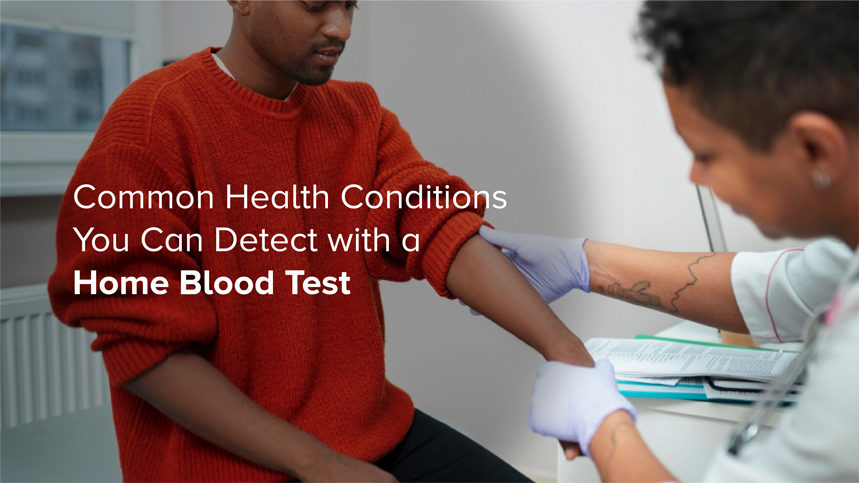


Condition
- Others
- Others
- Others
- Others
- Others
- Others
- Others
- Others
- Others
- Others
- Others
- Others
- Others
- Others
- Others
- Others
- Others
- Others
- Others
- Others
- Others
- Others
- Others
- Others
- Others
- Others
- Others
- Others
- Others
- Others
- Others
- Others
- Others
- Others
- Others
- Others
- Others
- Others
- Others
- Others
- Others
- Others
- Top tests
- Top tests
- Top tests
- Top tests
- Top tests
- Top tests
- Top tests
- Top tests
- Top tests
- Preventive Health Checkup
- Top tests
- Top tests
- Top tests
- Top tests
- Blood Banking & Transfusion
- Lifestyle Packages
- Blood Banking & Transfusion
- Blood Banking & Transfusion
- Top tests
- Top tests
- Lifestyle Packages
- Diabetes
- Blood Banking & Transfusion
- Blood Banking & Transfusion
- Blood Banking & Transfusion
- Blood Banking & Transfusion
- Blood Banking & Transfusion
- Others
- Others
- Others
- Others
- Blood Banking & Transfusion
- Blood Banking & Transfusion
- Blood Banking & Transfusion
- Blood Banking & Transfusion
- Vitamin Deficiency
- Vitamin Deficiency
- Vitamin Deficiency
- Vitamin Deficiency
- Vitamin Deficiency
- Blood Banking & Transfusion
- Blood Banking & Transfusion
- Blood Banking & Transfusion
- Blood Banking & Transfusion
- Diabetes
- Diabetes
- Heart Disease & Hypertension
- Preventive Health Checkup
- Diabetes
- Preventive Health Checkup
- Preventive Health Checkup
- Diabetes
- Diabetes
- Heart Disease & Hypertension
- Top tests
- Heart Disease & Hypertension
- Diabetes
- Top tests
- Diabetes
- Heart Disease & Hypertension
- Lifestyle Packages
- Heart Disease & Hypertension
- Lifestyle Packages
- Heart Disease & Hypertension
- Heart Disease & Hypertension
- Lifestyle Packages
- Preventive Health Checkup
- Preventive Health Checkup
- Top tests
- Preventive Health Checkup
- Heart Disease & Hypertension
- Heart Disease & Hypertension
- Heart Disease & Hypertension
- Top tests
- Top tests
- Lifestyle Packages
- Heart Disease & Hypertension
- Heart Disease & Hypertension
- Top tests
- Heart Disease & Hypertension
- Preventive Health Checkup
- Diabetes
- Lifestyle Packages
- Heart Disease & Hypertension
- Top tests
- Heart Disease & Hypertension
- Heart Disease & Hypertension
- Diabetes
- Lifestyle Packages
- Preventive Health Checkup
- Diabetes
- Top tests
- Diabetes
- Allergy
- Heart Disease & Hypertension
- Diabetes
- Heart Disease & Hypertension
- Diabetes
- Lifestyle Packages
- Lifestyle Packages
- Top tests
- Preventive Health Checkup
- Lifestyle Packages
- Preventive Health Checkup
- Preventive Health Checkup
- Diabetes
- Top tests
- Heart Disease & Hypertension
- Preventive Health Checkup
- Top tests
- Heart Disease & Hypertension
- Lifestyle Packages
- Lifestyle Packages
- Diabetes
- Preventive Health Checkup
- Top tests
- Diabetes
- Top tests
- Preventive Health Checkup
- Preventive Health Checkup
- Preventive Health Checkup
- Diabetes
- Lifestyle Packages
- Lifestyle Packages
- Heart Disease & Hypertension
- Lifestyle Packages
- Heart Disease & Hypertension
- Lifestyle Packages
- Preventive Health Checkup
- Preventive Health Checkup
- Preventive Health Checkup
- Lifestyle Packages
- Top tests
- Lifestyle Packages
- Top tests
- Lifestyle Packages
- Top tests
- Diabetes
- Diabetes
- Others
- Blood Disorders
- Top tests
- Others
- Others
- Others
- Fever
- Fever
- Blood Disorders
- Blood Disorders
- Preventive Health Checkup
- Preventive Health Checkup
- Profile
- Kidney Disease
- Kidney Disease
- Diabetes
- Diabetes
- Heart Disease & Hypertension
- Preventive Health Checkup
- Lifestyle Packages
- Thyroid Disorder
- Diabetes
- Diabetes
- Diabetes
- Diabetes
- Diabetes
- Diabetes
- Diabetes
- Top tests
- Allergy
- Top tests
- Top tests
- Top tests
- Top tests
- Diabetes
- Top tests
- Diabetes
- Top tests
- Top tests
- Top tests
- Liver Disease
- Diabetes
- Top tests
- Vitamin Deficiency
- Top tests
- Top tests
- Liver Disease
- Top tests
- Top tests
- Top tests
- Anemia
- Anemia
- Anemia
- Diabetes
- Diabetes
- Anemia
- Top tests
- Top tests
- Top tests
- Preventive Health Checkup
- Thyroid Disorder
- Heart Disease & Hypertension
- Top tests
- Preventive Health Checkup
- Diabetes
- Heart Disease & Hypertension
- Top tests
- Fever
- Allergy
- Liver Disease
- Lifestyle Packages
- Heart Disease & Hypertension
- Top tests
- Arthritis
- Top tests
- Top tests
- Heart Disease & Hypertension
- Kidney Disease
- Preventive Health Checkup
- Allergy
- Top tests
- Lifestyle Packages
- Top tests
- Kidney Disease
- Top tests
- Lifestyle Packages
- Top tests
- Preventive Health Checkup
- Preventive Health Checkup
- Top tests
- Top tests
- Vitamin Deficiency
- Allergy
- Diabetes
- Top tests
- Top tests
- Top tests
- Top tests
- Heart Disease & Hypertension
- Allergy
- Top tests
- Preventive Health Checkup
- Top tests
- Top tests
- Infertility
- Top tests
- Lifestyle Packages
- Allergy
- Diabetes
- Heart Disease & Hypertension
- Lifestyle Packages
- Preventive Health Checkup
- Preventive Health Checkup
- Top tests
- Preventive Health Checkup
- Top tests
- Diabetes
- Top tests
- Infertility
- Top tests
- Thyroid Disorder
- Top tests
- Allergy
- Preventive Health Checkup
- Vitamin Deficiency
- Top tests
- Top tests
- Infertility
- Lifestyle Packages
- Diabetes
- Liver Disease
- Kidney Disease
- Vitamin Deficiency
- Top tests
- Heart Disease & Hypertension
- Heart Disease & Hypertension
- Top tests
- Heart Disease & Hypertension
- Heart Disease & Hypertension
- Heart Disease & Hypertension
- Infertility
- Heart Disease & Hypertension
- Vitamin Deficiency
- Vitamin Deficiency
- Arthritis
- Arthritis
- Top tests
- Top tests
- Lifestyle Packages
- Preventive Health Checkup
- Lifestyle Packages
- Preventive Health Checkup
- Vitamin Deficiency
- Top tests
- Lifestyle Packages
- Lifestyle Packages
- Preventive Health Checkup
- Top tests
- Preventive Health Checkup
- Top tests
- Heart Disease & Hypertension
- Infertility
- Top tests
- Top tests
- Preventive Health Checkup
- Lifestyle Packages
- Top tests
- PCOD
- Preventive Health Checkup
- Lifestyle Packages
- Preventive Health Checkup
- Top tests
- Fever
- PCOD
- Kidney Disease
- Top tests
- Top tests
- Preventive Health Checkup
- Preventive Health Checkup
- Liver Disease
- Thyroid Disorder
- Top tests
- Heart Disease & Hypertension
- PCOD
- Top tests
- Arthritis
- Preventive Health Checkup
- Kidney Disease
- Lifestyle Packages
- Top tests
- Allergy
- Top tests
- Top tests
- Diabetes
- Thyroid Disorder
- Preventive Health Checkup
- Top tests
- Lifestyle Packages
- Preventive Health Checkup
- Top tests
- Kidney Disease
- Liver Disease
- Infertility
- Top tests
- Anemia
- Top tests
- Top tests
- Top tests
- Preventive Health Checkup
- Bone Health
- Cancer
- Fatty Liver

Tests
Thyroid nodules are quite common, affecting about 50% of people by the age of 60. While most thyroid nodules are benign, some can indicate thyroid cancer. It’s important to know the potential risks and undergo proper evaluation, biopsy, and diagnosis to ensure your thyroid health.
Types of thyroid nodules
Before we dive into the specifics of thyroid nodule evaluation, biopsy, and diagnosis, it’s important to know that thyroid nodules come in two main types: solid and cystic. Solid nodules are hard masses in the thyroid gland, while cystic nodules are fluid-filled lumps. Understanding which type of nodule you have is vital in proper diagnosis and treatment.
Evaluation
Evaluating thyroid nodules involves several procedures, including ultrasound and thyroid function tests. Typically, a doctor will perform an ultrasound to examine the nodule in-depth and assess its size, location, and characteristics, including whether it is solid or cystic. A fine-needle aspiration (FNA) biopsy may also be required to determine if the nodule is cancerous.
FNAC
During an FNA biopsy, a small needle is inserted through your skin and into the nodule to remove a small tissue sample. This sample is then examined under a microscope to determine the type of cells present in the nodule. An FNA biopsy is typically performed on solid nodules, and it is usually a straightforward procedure with minimal discomfort. In most cases, a biopsy can be done on an outpatient basis.
Biopsy
Diagnosis
If your biopsy results come back as positive for cancerous cells, your healthcare provider will likely recommend surgery to remove the nodule. Surgery may also be necessary if the nodule is deemed suspicious, even in the absence of cancerous cells. On the other hand, if the nodule is benign, your healthcare provider will monitor it to ensure it does not grow or change over time.
Conclusion
Thyroid nodules are a relatively common condition that requires proper diagnosis and treatment. Knowing the characteristics and type of nodule you have is vital in ensuring you receive the correct evaluation and biopsy. If you have a suspicious or cancerous nodule, surgery may be required to remove it, while benign nodules can be monitored over time. With proper care and attention, you can rest-assured that your thyroid health is taken care of.
WANT TO BOOK HEALTH CHECKUP ?
Categories
Others
50
Top tests
100
Preventive Health Checkup
46
Blood Banking & Transfusion
16
Lifestyle Packages
35
Diabetes
40
Vitamin Deficiency
12
Heart Disease & Hypertension
37
Allergy
9
Blood Disorders
3
Fever
4
Profile
1
Kidney Disease
8
Thyroid Disorder
5
Liver Disease
6
Anemia
5
Arthritis
4
Infertility
6
PCOD
3
Bone Health
1
Cancer
1
Fatty Liver
1
Recent Blogs
Common Health Conditions You Can Detect with a Home Blood Test
Home blood testing has transformed how we monitor our health, making medical diagnostics...
01-10-2025
Vitamin C During Pregnancy – Why It’s Important for Mother & Baby
A well-balanced diet is fundamental to a healthy pregnancy, providing the essential nutrients...
01-10-2025
Foods Rich in Vitamin B12: A Complete Guide for Better Nutrition
Vitamin B12 stands as one of the most critical nutrients for optimal health, yet millions...
01-10-2025







